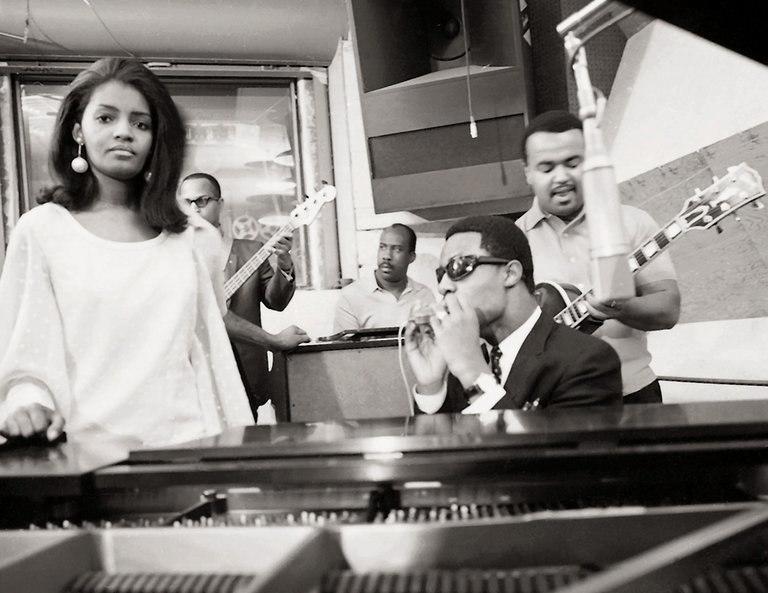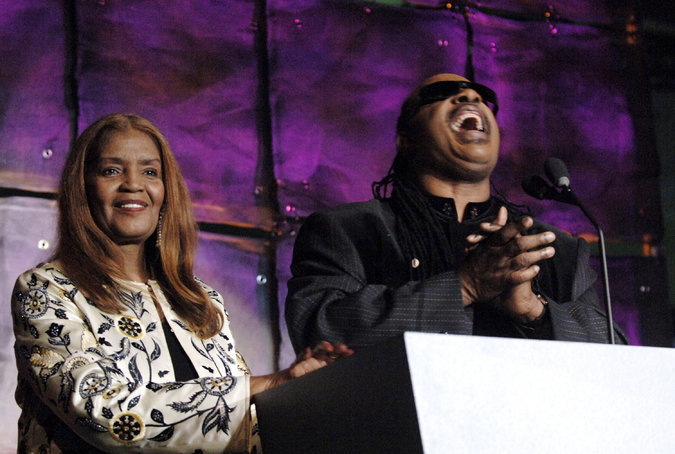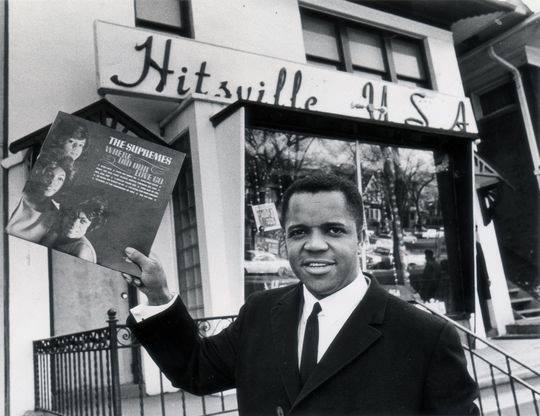The reason for the Jackson Five's departure to Epic revealed.
NEW YORK - It's now a legend of show business, the story of how five teenagers from Gary, Indiana, became the best-selling band in motown Records history, surpassing giants such as the Temptations and the Supremes, whose singer Diana Ross was the one who brought them to Motown.
In their first year at Motown in 1970, they sold one million singles in one month, and were ranked number one in singles sales of the year by the prestigious music industry magazine, Billboard. In two years, they sold 17 million singles; in five years, this total amounts to nearly 30 million.
The success story of the Jackson Five, like that of Motown, had a special meaning for the Black youth. As Diana Ross herself pointed out, "If Berry Gordy hadn't been looking for talent in the Black community, we wouldn't have been discovered."
The legend continued with personal record sales records, so the Motown and Jackson Five dynasties became increasingly united, notably with Jermaine's marriage to Berry Gordy's daughter, Hazel, in a $200,000 ceremony that had as much private significance as media interest.
But time passes, and even legends change. The repeated rumors became a reality earlier this month, when the Jackson family announced at a news conference in New York that they were leaving Motown for Epic Records, part of the major CBS Inc. broadcasting group, as their contract at Motown expires on March 10.
The question that immediately comes to mind is of course: why? What happened to a relationship that went beyond the professional framework, a relationship that Joe Jackson, father of the group, described as almost paternal, would end?
« They treat boys like their own children,"Jackson said in 1970, referring to Diana Ross and Berry Gordy Jr. "They listen to them with ears and minds wide open, and they discuss everything together."
There is too much to explain, especially regarding the way Motown operates, on a system that has led to the departure of many of its most prominent artists. Many of them cite similar reasons for leaving. The Jacksons are no exception.
Simply put, Motown is focused on selling singles, not selling albums, reflecting a belief in the music world that blacks don't buy albums, but singles. The Jackson Five's sales figures seem to confirm this trend towards singles. In 1970, the Jackson Five had four platinum singles, which means more than 2 million sales per single. Their first three albums, even though they reached the top of the most popular charts, sold only 5.7 million copies, according to published figures.
However, since Motown at the time was not a member of the Recording Industry Association of America, which officially certifies record sales, the figures are never official, and are provided by Motown itself.
Motown's focus on singles, however, could explain this gap. Because of the traditional belief that blacks don't buy albums, black albums have always been made with few resources, and often contain only a handful of singles collected on a record, which discouraged single buyers from buying the album as well, since they already had the singles it contained.
Yet it is the albums that make the most money for an artist. As Jackie Jackson pointed out at the recent press conference, "We want to sell a lot of albums. Motown is a company that sells singles. »
At the press conference, Tito added: "It's the albums that make you really famous. Motown sells a lot of singles, we want to move forward by selling a lot of albums. »
Many artists also write their own works, or at least part of it. When included in an album that sells well, these songs written by the artist himself earn him more money, because he is not only paid as a performer, but he also receives royalties as a songwriter. For the same reasons, many artists begin to perform themselves, so they are paid as performers, songwriters and producers, and as a result they significantly increase their profits.
A former Motown artist, who does pretty well at another label, explains that it doesn't work at Motown. According to him, the interpreters are, for the most part, considered interpreters, and nothing else. If a performer writes a song, he finds himself in the position of sharing the credits for that song with at least one of the members of the "team" of authors, and so he must return some of his royalties as a songwriter through their publishing house. The same thing happens to producers. As a result, many artists are holding back from Motown; they prefer not to leave them their original creations.
As one of the Jacksons pointed out at the New York press conference, "We kept original creations for us for a while because we couldn't express our talent for writing. We join Epic to do a good job with our creations. The band will also produce the songs they write, while CBS will provide producers for non-original creations.
The Jackson Five still have a Motown album, and they won't be able to enter the studio with Epic until their contract with Motown expires next March. But there are still some problems to iron out, especially with regard to the group itself.
First of all, it is not known if Jermaine, married to Hazel Gordy, will follow the Jackson Five to their new label. Although the family expressed confidence at the New York press conference that Jermaine would join them, he has not yet signed his new contract. Obviously, times are difficult for Jermaine and it is a situation that requires time. There are indications, however, that Jermaine could stay with Motown as a solo artist. The reviews of his previous solo performances were, for the most part, quite lukewarm.
There is also the question of the name of the group. Motown, saying the Jackson Five name "belongs to him," threatened to sue CBS if the name is used by Epic. At the press conference, Epic members made sure to refer to the group as the "Jackson family," implying that it could extend to younger brother Randy and his sister Janet.
Similar legal situations have already occurred when other artists left Motown. In at least one case, a famous artist discovered that he could not interpret any of his Motown hits, because they belonged to the Motown publishing house, which like all publishing houses, must allow public performances of his copyrighted works. As a result, the artist in question eventually returned to Motown.
There is also the issue of finance, and so-called external benefits. The Jacksons described Motown's financial proposal as minimal compared to the offer issued by Epic Records. Obviously, even a company like Motown, which brought in nearly $50 million in 1974, can't hope to compete with a giant like CBS, which literally considers that $50 million to be pocket money.
In addition, cbs' various activities — a television channel and a radio station, a record company that sells worldwide, and is considered the world's largest record company with a monstrous budget to promote its records - certainly mean more opportunities to make money for the band through TV shows. , tours, films, etc.
« I tried to push the band to go further with a bigger company, which could be more beneficial for the band,"said Joe Jackson, explaining why he had approached CBS to sign a contract.
It is also rumored that he has spoken to a number of other major record companies, such as RCA, Atlantic and Arista, which under the chairmanship of Clive Davis, former president of Columbia, would like to lure Stevie Wonder into his nets, his Motown contract expiring this year.
Although no figures have been released, sources say the Jackson Five's new deal with Epic is close to $8 million. What we do know is that CBS, which now distributes several black labels, will distribute Joe Jackson's Ivory Tower Records, while letting the band produce its own creations.
« That doesn't mean we're leaving Motown on bad terms,"Jackson said. "As we said, we are moving towards bigger things and better things. Before Motown could do anything, the talent had to be there. If there had been no talent, we would not have joined Motown. We would have ended up somewhere else. »
Joe Jackson on the divorce between the Jackson Five and Motown:"No opportunity has ever been offered to us. »
The band's talent is "stifled," Papa Joe insinuates.
HOLLYWOOD - The Jackson Five's father, Joe Jackson, told SOUL exclusively why the world-famous band left Motown after a six-year relationship. From his Hollywood offices, Jackson gave a myriad of reasons for this exile to Epic Records. "When things don't go in the right direction and you don't like the situation, the next step is to leave,"he said.
« We have been trying for six years to make things right. That is the truth, and instead of things getting better, they have gotten worse. That's why no boys' songs appear on their albums. You've never heard a song written by the boys, or you've never seen them go on stage to get a reward or something like that, because I didn't want them to sign exclusively at Jobete,"he continued. "We didn't ask for much two years ago. They didn't want to. They wanted their writers and producers exclusively, and the boys are artists. I do not want them to be like the other groups. I want them to be able to use all their talent. I want audiences around the world to know that they know how to do something other than just get on stage. »
« Motown didn't give them a chance. But now, very recently, only a few weeks ago, they let Jermaine produce her own album and do everything. And if they had let them do it before, SOUL asked. "Then there would have been no problem,"Jackson replied.
When SOUL asked if Jermaine would follow the band and stay at Motown, he replied: "Jermaine signed with Motown, as I understand it. I have not seen his contract. I asked him to let me see his contract before signing it, but he didn't let me see anything. But I think it may happen later, he could come and join us. I'm sorry that Jermaine can't be part of the adventure. Jermaine will be able to join us in the future if he wishes. »
When SOUL asked Joe if he had spoken to Motown boss Berry Gordy about the new contract, Joe said, "Berry sent Abner to lead the negotiations. Berry never intervened, he never tried to reach me to talk to me. I asked several times to talk to him. When I go to see other companies I don't have this problem. Presidents are very friendly people, they talk to you and that's how you can get along. I was never able to reach Berry to do that. I really wanted to work with them but they didn't give us a chance. I can't handle these egos. »
SOUL asked him about the five-year contract with Epic, but Jackson was reluctant to talk about the amount. "All I can tell you is that this agreement is between $1 million and $20 million. I am very happy with this agreement which will open many doors on many things. »
When SOUL asked if they would be able to use the jackson Five name, Jackson said, "That's what we're fighting for right now. They don't have that name. They say it is, but it is not. The only thing they have is the Jackson Five logo. We don't want that logo. We'll do ours, but Jackson is our last name. »
« Today Jesse Jackson is at CBS looking for problems. We've done a lot for Jesse Jackson, not Motown. »
« I hope black people realize that the Jacksons don't leave Motown for nothing. There are several reasons and I hope that no one is trying to play with the notion of Black. We left because we didn't get what we wanted at Motown, and we were able to get it elsewhere. »
The Motown programmer says Jermaine will stay.
LAS VEGAS - Motown Records President Ewart Abner has insinuated that the Jackson Five were unsym loyalty during negotiations for a new contract.
Reached by phone in Las Vegas, where he arrived to watch the Jackson Five perform at the MGM Grand Hotel, Abner told SOUL: "There has never been a renegotiation. There was an arrangement that said that they were free to leave and make an offer, that Motown reserved the right to line up. If they had, they would have stayed at Motown. Unfortunately, that did not happen. This was our arrangement from the beginning, in which I had played a role. They could consider that they had gone around that market. I was aware of the rumours that they were in discussions with other record companies. Arista, Atlantic and Columbia were among them. I didn't mind because from what I understood from Joe, no matter what kind of offer we made to them, we just had to line up so that they would stay at what we called home. Something must have happened in the meantime, but we should ask Joe. Even though they went shopping elsewhere, they never gave us the opportunity to align ourselves with this offer. »
SOUL asked if the reason the Jackson Five left was that Motown was focused on singles, and that it was not an album selling company. "That's their opinion,"Abner said. "Someone must have talked to them, but that's not the reality at all. There was a time when we were known to be the biggest sellers of singles. We had three or four singles in the Top 10 every week but that was a few years ago. Since that time, we have had to do like other record companies and develop a marketing plan for albums. We had to focus and build sales capacity to enter the market and increase album sales. The Temptations have gone gold and will probably be platinum with their album. Grover Washington Jr. received a gold record. The Jackson Five album is currently at the top, as are the Kendricks. So it's fiction,"Abner continued. "I try to be a little sensitive because we are friends with family. And whatever the agreement with Epic Records, it will not begin until April 1976. So we still have a relationship of several months ahead of us. »
When asked about Jermaine, Abner said, "Jermaine chose to stay at Motown. He decided it was better for him and for the development of his career. Jermaine is a very strong and very moral person, he is very close to Berry. Of course, there's also the obvious fact that he's married to Berry's daughter. I do not know how long it will remain, because this issue is quite personal. Maybe one day Jermaine will tell you, if he wishes,"Abner replied when asked how long Jermaine's new contract would last.
SOUL asked Abner about the album, which is still due to Motown, and which was mentioned in a press conference. "No, I don't know where it came from. There are no number of products to be released between today and March. »
SOUL, in conclusion, asked whether it was unusual for one group to sign with another company while still under contract. "It's something that's evolved in the last few years, and sometimes a company signs with a group that is at the end of a contract." Abner added: "Some companies are now challenging it. I do not know if there have been enough cases or laws on this, I am not a lawyer, so I will not venture to give an opinion. This is not the first time this has happened in recent years. This has already happened in other companies. »
https://www.soulnewsarchive.com/index
https://soul.photoshelter.com/galler...00SBOmlBLfv8k/



